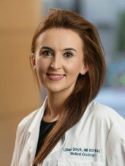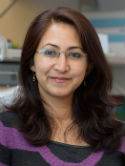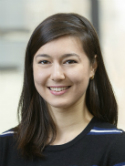AKT mutant allele-specific activation dictates pharmacologic sensitivities Journal Article
| Authors: | Shrestha Bhattarai, T.; Shamu, T.; Gorelick, A. N.; Chang, M. T.; Chakravarty, D.; Gavrila, E. I.; Donoghue, M. T. A.; Gao, J.; Patel, S.; Gao, S. P.; Reynolds, M. H.; Phillips, S. M.; Soumerai, T.; Abida, W.; Hyman, D. M.; Schram, A. M.; Solit, D. B.; Smyth, L. M.; Taylor, B. S. |
| Article Title: | AKT mutant allele-specific activation dictates pharmacologic sensitivities |
| Abstract: | AKT- a key molecular regulator of PI-3K signaling pathway, is somatically mutated in diverse solid cancer types, and aberrant AKT activation promotes altered cancer cell growth, survival, and metabolism1–8. The most common of AKT mutations (AKT1 E17K) sensitizes affected solid tumors to AKT inhibitor therapy7,8. However, the pathway dependence and inhibitor sensitivity of the long tail of potentially activating mutations in AKT is poorly understood, limiting our ability to act clinically in prospectively characterized cancer patients. Here we show, through population-scale driver mutation discovery combined with functional, biological, and therapeutic studies that some but not all missense mutations activate downstream AKT effector pathways in a growth factor-independent manner and sensitize tumor cells to diverse AKT inhibitors. A distinct class of small in-frame duplications paralogous across AKT isoforms induce structural changes different than those of activating missense mutations, leading to a greater degree of membrane affinity, AKT activation, and cell proliferation as well as pathway dependence and hyper-sensitivity to ATP-competitive, but not allosteric AKT inhibitors. Assessing these mutations clinically, we conducted a phase II clinical trial testing the AKT inhibitor capivasertib (AZD5363) in patients with solid tumors harboring AKT alterations (NCT03310541). Twelve patients were enrolled, out of which six harbored AKT1-3 non-E17K mutations. The median progression free survival (PFS) of capivasertib therapy was 84 days (95% CI 50-not reached) with an objective response rate of 25% (n = 3 of 12) and clinical benefit rate of 42% (n = 5 of 12). Collectively, our data indicate that the degree and mechanism of activation of oncogenic AKT mutants vary, thereby dictating allele-specific pharmacological sensitivities to AKT inhibition. © 2022, The Author(s). |
| Journal Title: | Nature Communications |
| Volume: | 13 |
| ISSN: | 2041-1723 |
| Publisher: | Nature Publishing Group |
| Date Published: | 2022-04-19 |
| Start Page: | 2111 |
| Language: | English |
| DOI: | 10.1038/s41467-022-29638-1 |
| PUBMED: | 35440569 |
| PROVIDER: | scopus |
| PMCID: | PMC9018718 |
| DOI/URL: | |
| Notes: | MSK author Jianjiong Gao's name is misspelled in original publication -- Source: Scopus |
Altmetric
Citation Impact
BMJ Impact Analytics
MSK Authors
Related MSK Work





















